Turbo Overkill Review – Cybergunk Boomer Shooter

Developed by Trigger Happy Interactive
Published by Apogee Entertainment
Available on PC
MSRP: $24.99
Turbo Overkill is a game I feel like I should like. Whoops, looks like I just gave away my opinion in the first sentence there. Backtrack, diffuse, deploy scene-setting paragraph aaaand go.
Turbo Overkill puts you in the boots of Johnny Turbo, a silent, cigar-smoking gun for hire whose primary attributes are a) a name that makes him sound like a porn star and b) a mechanical leg with a pretty sick inbuilt chainsaw. Working in the dystopian megacity of Paradise, he’s tasked by his shady corporate paymasters with purging their pet rogue AI. Oh, you whacky megacorps, will you never learn? Ever true to the genre, the AI – called SYN – has gained sentience, developed a god complex, and is now spreading its influence by assimilating humans and warping them in its own image. It’s basically SHODAN, if SHODAN had spent one too many evenings playing The Evil Within’s last chapter and watching that Come to Daddy music video on loop.
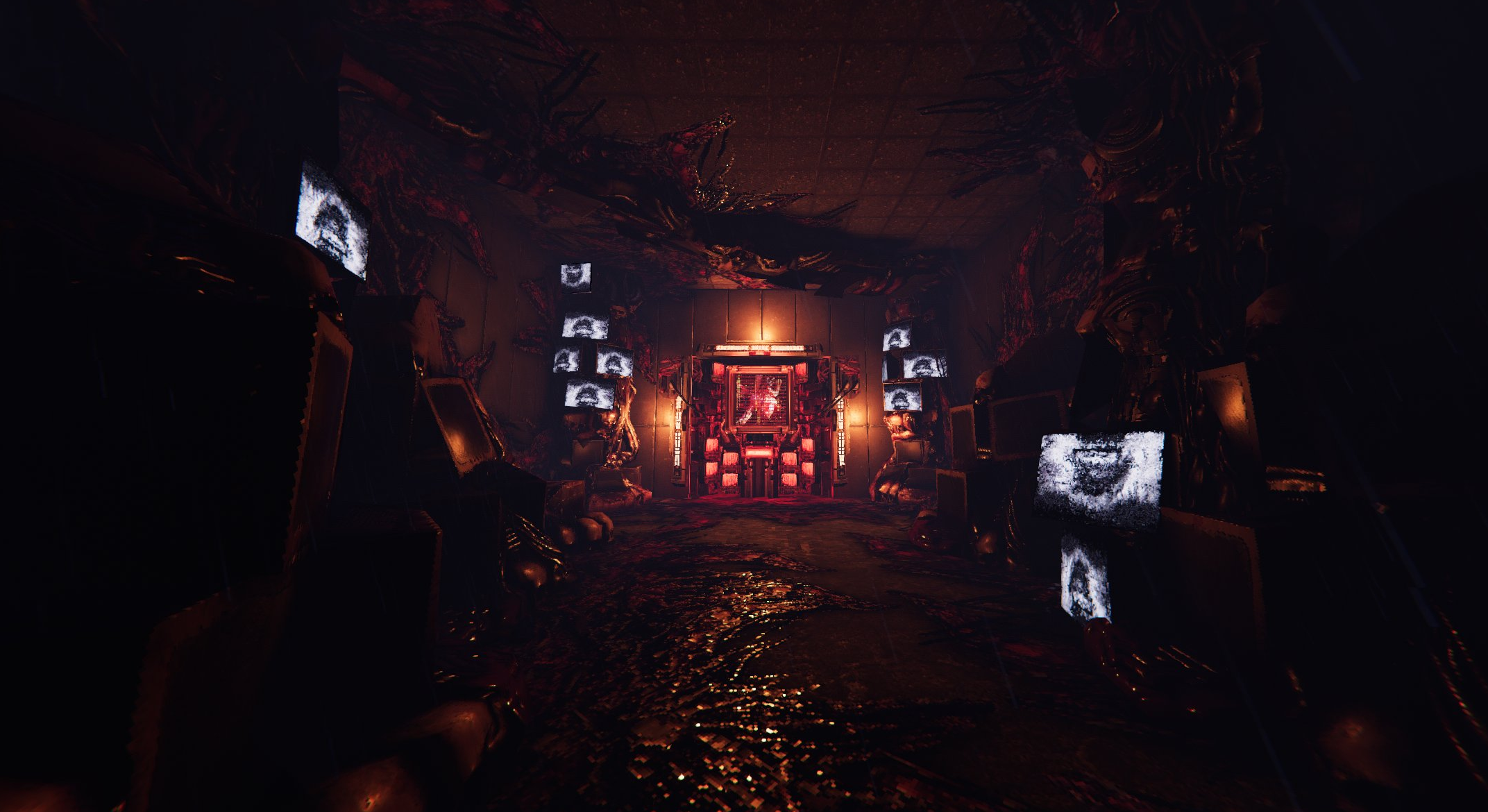
Let’s get the praise out of the way first, because there’s certainly a lot of it to give. There’s a legitimate debate to be had whether the cyberpunk aesthetic is overplayed at this point, but Turbo Overkill stands as a powerful argument that there’s still life in the subgenre yet. The environment design is pretty sweet, with imposing granite towers competing with gigantic holograms for Paradise City’s skyline. Neon signs overlook grubby, graffiti-laden streets, while biomechanical tendrils of SYN’s influence turn parts of the city into retrowave nightmare fuel. The game’s also stuffed to the eyeballs with some neat references, like an early apartment block level that pays homage to the Peach Trees complex from 2012’s Dredd. All of this is done with chunky, almost voxel-like graphics, keeping the framerate running at a smooth lick even as the game throws dozens of enemies at you.
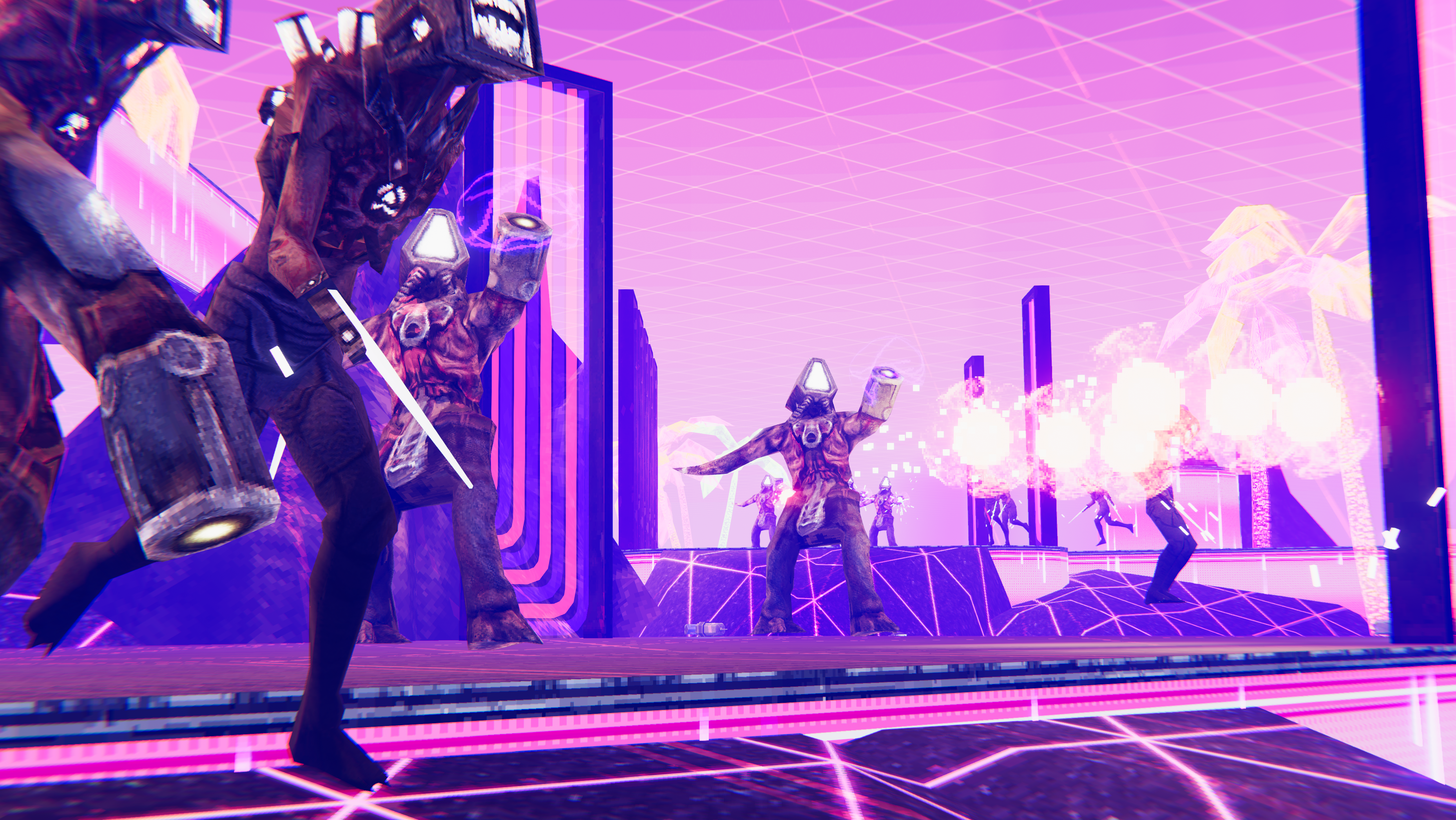
But the ace up the presentation’s sleeve is the music. I’m a sucker for a good soundtrack in a shooter, and Turbo Overkill’s aural accompaniment to the onscreen action is a synthwave fan’s wet dream. Its bass-laden score spans the gamut from darkwave to industrial metal to techno, and it all makes you feel like an absolute badass. As I was mowing down waves of SYN’s demented legions I often caught myself unironically headbanging to the game’s sick beats.
As for the combat itself, it takes obvious inspiration from Doom Eternal and other indie games that have subsequently copied it. Johnny comes with a sizeable arsenal that includes the usual FPS suspects – miniguns, rocket launchers, shotguns (both pump-action and double-barrel varieties) – and has an ancillary mini-rocket salvo that runs on a cooldown. Each gun also comes with an alternate fire mode, doubling the number of combat choices the player has at their disposal.
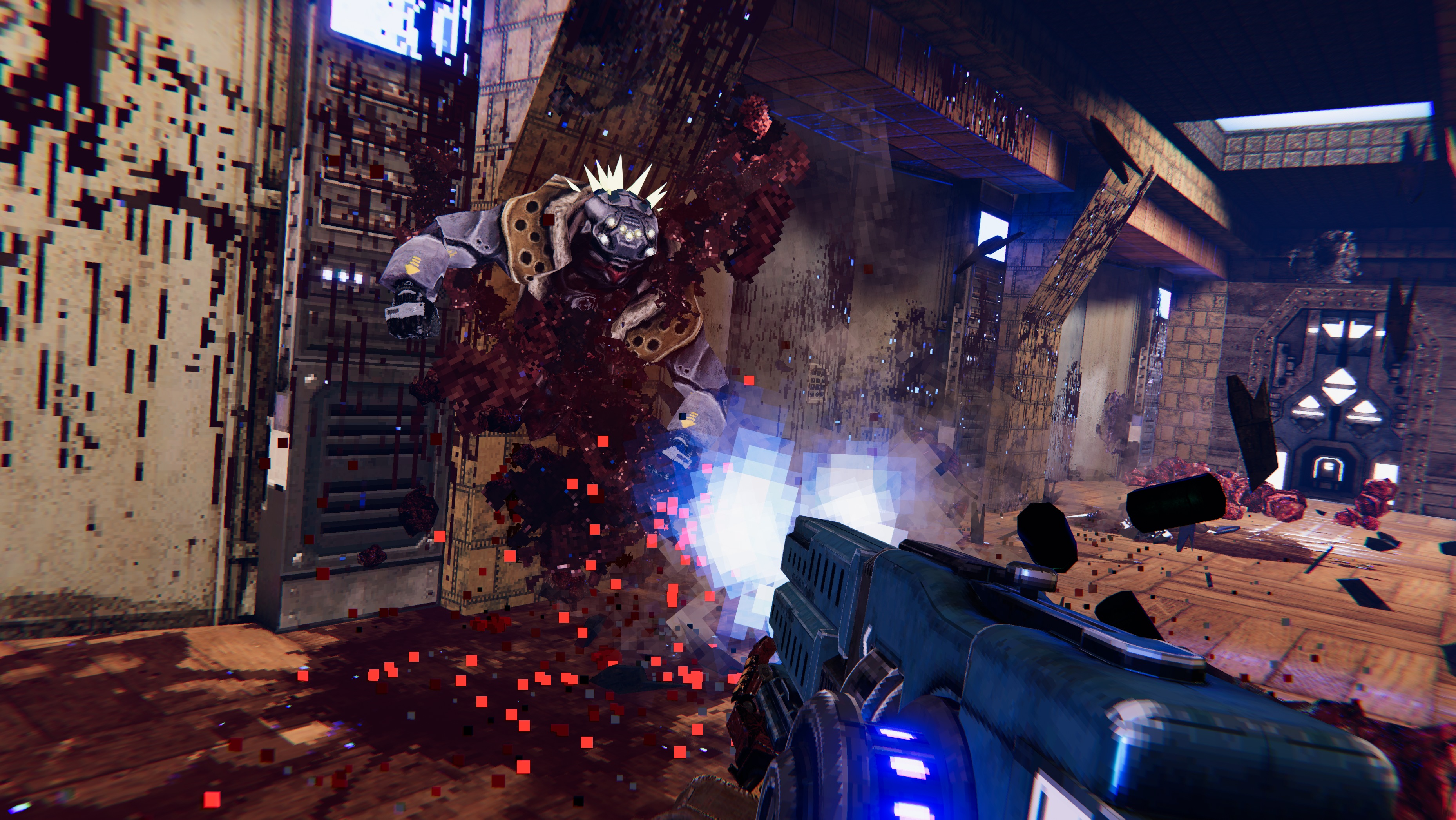
It wouldn’t be ‘run and gun’ if movement wasn’t just as important as shooting, however. Players have access to a double dash, a ground slide, and, later, a grappling hook and a slo-mo ability. The biggest twist to the formula is Johnny’s aforementioned chainsaw leg, which elevates the ground slide from a mere means of traversal to an essential tool for dispatching enemies. It’s not an understatement to say that you’ll spend just as much time chowing through foes with this thing as you will shooting them.
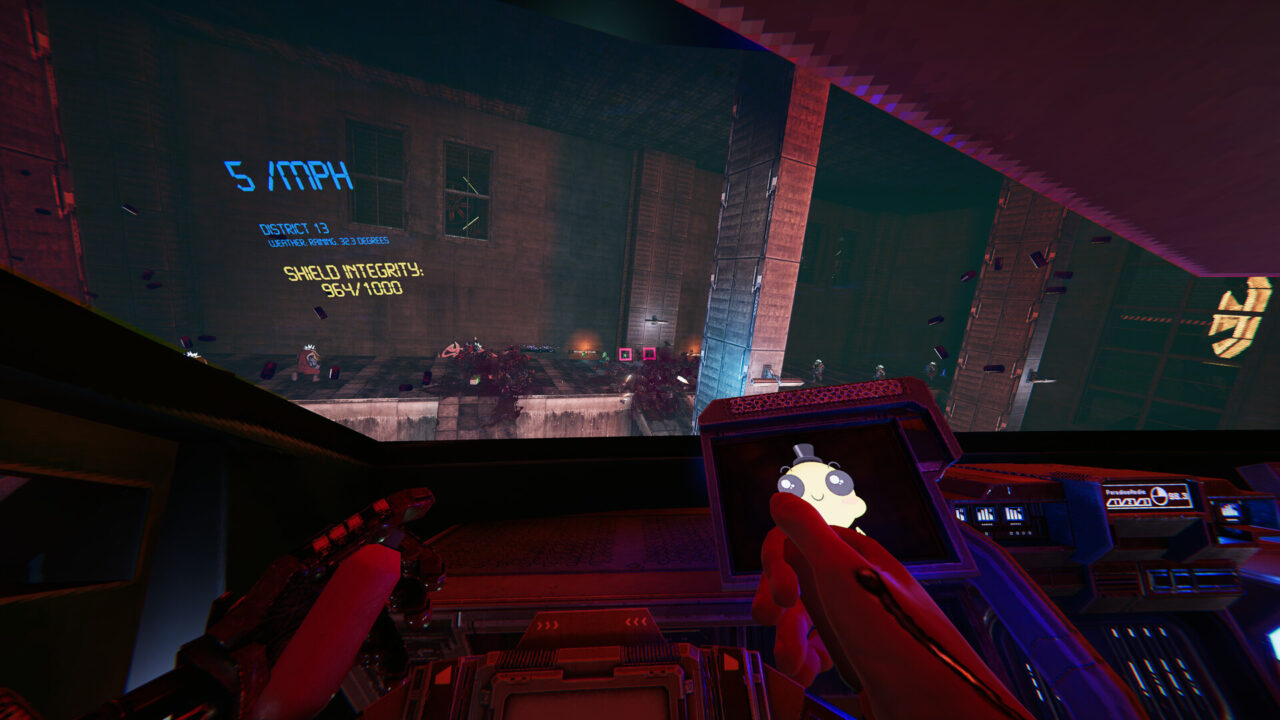
In keeping with the cyberpunk theme, all of the above can be enhanced by purchasing various cybernetic buffs from humorously-voiced vending machines. Speaking of which, it’d be remiss of me to not mention Johnny’s AI companion S.A.M.M. here. Voiced by Duke Nukem’s Jon St. John no less, he’s a smiley yellow blob with an adorable little top hat and a British accent, and every line he delivered was more likely than not to make me crack a grin.
I do have a few criticisms when it comes to the gameplay, though. Whilst I can’t fault the game’s spectacle when it comes to artistic flair, there’s often too much visual clutter mid-combat. Many of the human-sized enemies don’t have particularly distinct silhouettes, and between the garishly lit backgrounds and sheer number of projectiles coming your way it’s often hard to gauge where you’re being shot from.
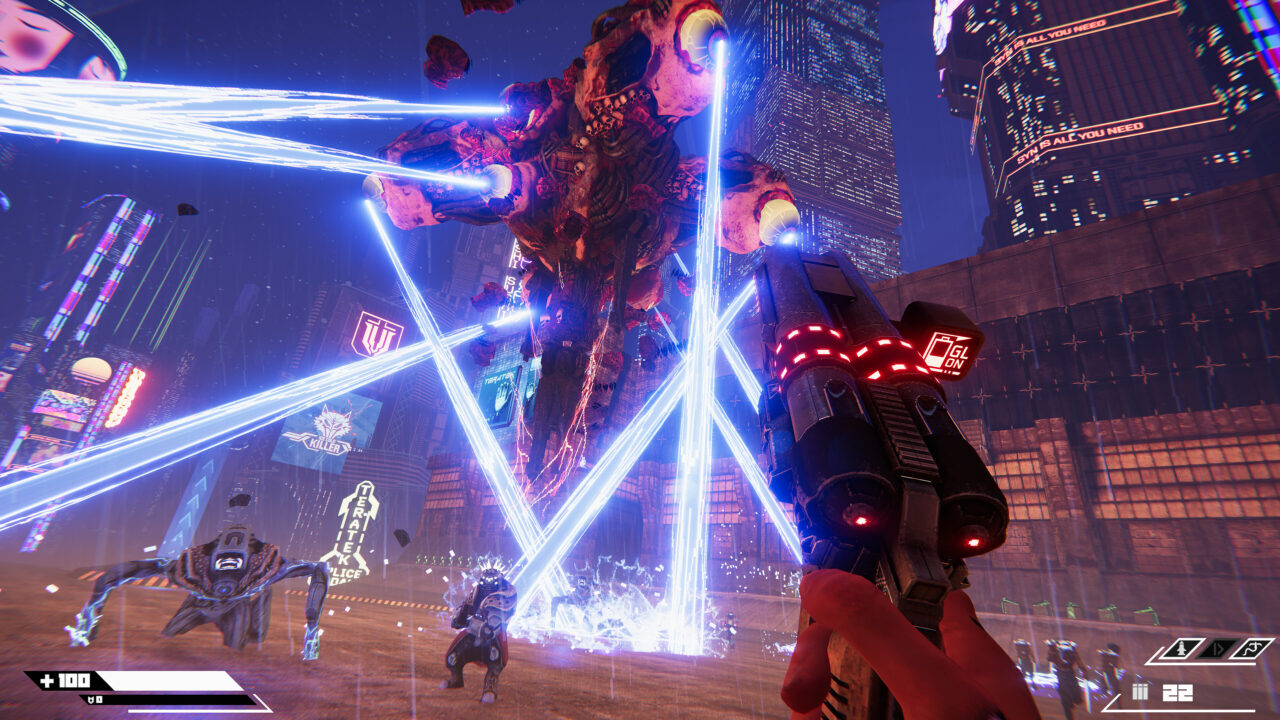
Another gripe is that some of the guns and their alt-fires are far more useful than others. The dual pistols’ primary fire does about as much damage as harsh language, for example, while their auto-targeting charged shot is virtually essential. Moreover, there’s a general lack of that all important sense of oomph and crunch. Sure, the combination minigun and flamethrower is pretty beastly, but the game commits the cardinal sin of boomer shooters with its shotguns, which just sound anaemic. If I don’t feel like I’m invoking God’s Own Wrath every time I let the buckshot fly in a game like this, there’s something going wrong somewhere.
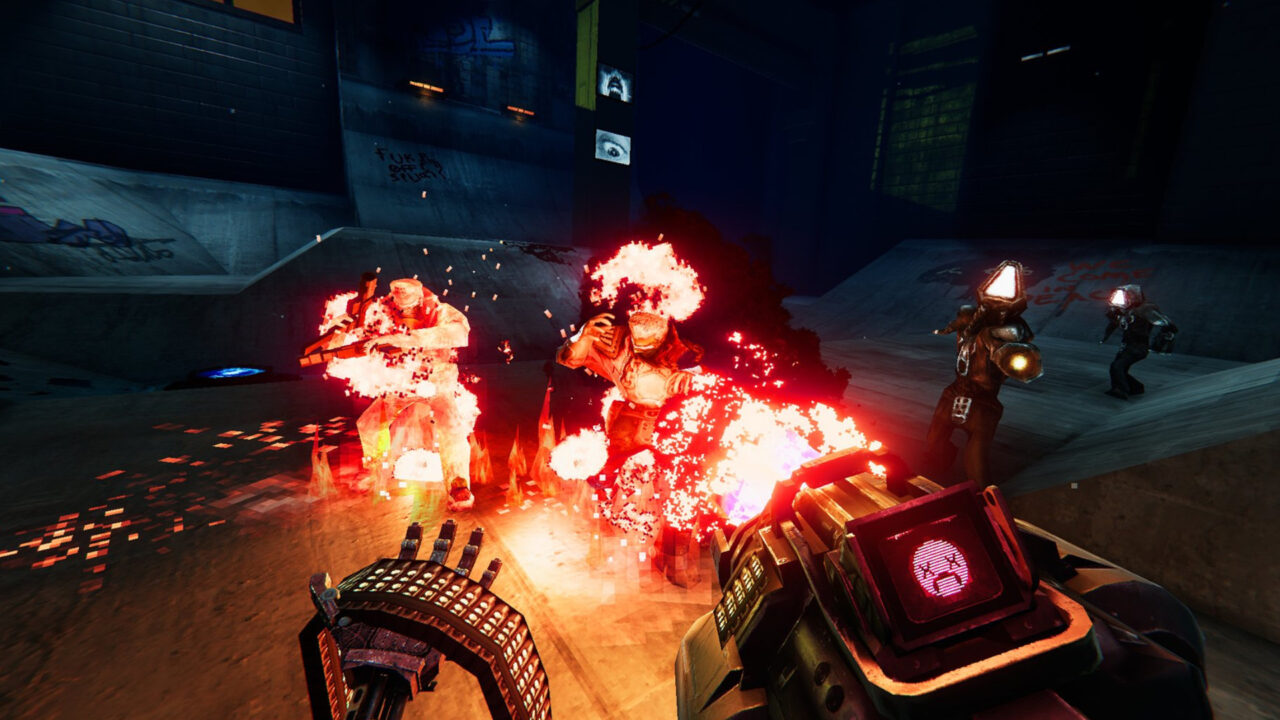
None of these quibbles condemn Turbo Overkill to the dustbin. Standing outside of my own viewpoint, I can see how the game has managed to earn its Overwhelmingly Positive rating on Steam. The combat is multi-layered, the art style on point, and the technical performance good. But the minor complaints I raise point to a subjective reason for why I personally couldn’t get on board with the game. For me, the gameplay is just too fast, too hectic.
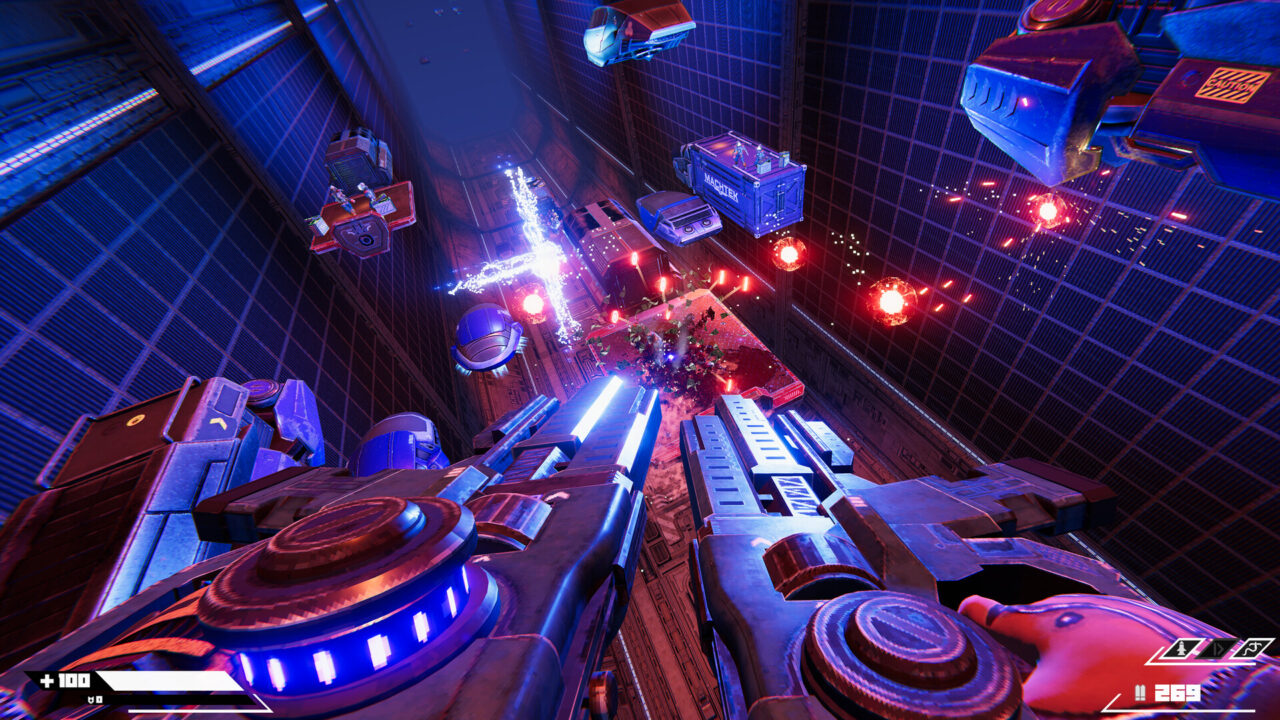
I see FPS-dom as a spectrum. At one end, you have methodical, narrative-driven shooters like Half Life and Bioshock. At the opposite end, there are the ultra-fast shooters where you dash through a level in under two minutes racking up the highest score. I admit I’m more on the former side. But I can – and do – get my kicks from boomer shooters. What clinches it for me is that ever-hard-to-define idea of ‘weightiness’. I can dig the idea of an ultimate ass-kicker dashing around a room taking out twenty guys at once. But I still want it to feel like a shooter, not a bullet hell. I want to feel my power-armored feet thumping across the floor, want to viscerally experience the recoil of each shot, want to feel like I’m in a life-or-death struggle instead of a speedrun competition. When you’re going for the kind of hyper-fast action that Turbo Overkill aspires to, a lot of that feedback gets lost. And that’s totally cool. It’s just not for me. Turbo Overkill cranks the intensity up to eleven; I would have been happier if it had kept it at ten.
If you like indie boomer shooters, killer soundtracks, and all things cyberpunk, Turbo Overkill is the title for you. But let’s be honest, if that’s your winning combination, you’ve probably already purchased this game. It wasn’t for me, but I say hey, shine on you crazy cyborg diamond, you.
-
Turbo Overkill
Categorized: Reviews
